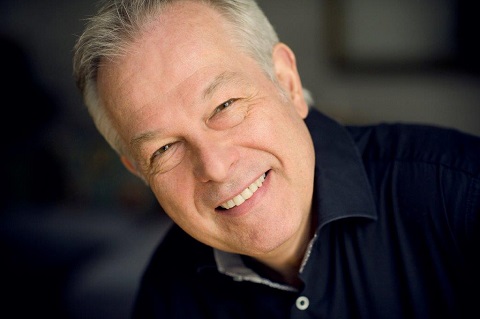 Switzerland J.S. Bach: Miriam Feuersinger (soprano), Alex Potter (countertenor), Julian Prégardien (tenor), Peter Kooij (bass), Collegium Vocale Gent / Christoph Prégardien (conductor). Tonhalle Maag, Zürich, 17.12.2019. (JR)
Switzerland J.S. Bach: Miriam Feuersinger (soprano), Alex Potter (countertenor), Julian Prégardien (tenor), Peter Kooij (bass), Collegium Vocale Gent / Christoph Prégardien (conductor). Tonhalle Maag, Zürich, 17.12.2019. (JR)

J.S. Bach – Christmas Oratorio BWV 248: Cantatas I, II, III, VI
The first question for any conductor and choir management is to decide how much of Bach’s lengthy Christmas Oratorios its audience will endure. The whole work, with all six cantatas, with every da capo repeat, is a long slog for all concerned, with countless recitatives, arias, chorales and choruses – and they are not all masterpieces. Bach cobbled this work together in 1734 from existing cantatas and wrote some new ones, to be performed in church on six days around Christmas: Christmas Eve, the two Christmas Days, New Year, the first Sunday after New Year and Epiphany. Christoph Prégardien chose to perform just four of the cantatas; omitting Cantatas IV and V has its musical downsides. You miss from the Fourth Cantata the lilting ‘Fallt mit Danken’ chorus which opens the cantata, ‘Flösst mein Heiland’, the aria with the echo, the superb tenor aria ‘Ich will dich nur zu Ehren’; and in the Fifth Cantata the stirring chorus ‘Ehre sei dir, Gott, gesungen’. These omissions do mean the orchestra can dispense with their horn section. The audience did not seem to mind; what you do not know, you do not miss.
As far as the performance is concerned, it was, as the Germans put it, ‘klein, aber fein’, which has no direct English translation but perhaps ‘small but perfectly formed’ fits the bill. Collegium Vocale Gent are one of the prime choral groups in mainland Europe, usually conducted by Philippe Herreweghe, specialise in Baroque works and they are regular and welcome visitors to Switzerland. Its group of 12 singers must sing works such as the Christmas Oratorio on a very regular basis; it is in their blood. The four soloists (only the bass a regular member of the Collegium) take their place to sing with the chorus.
The flamboyant chorus ‘Jauchzet, frohlocket’ with Baroque trumpets and drums opens the work in great style; it took my ears a few minutes to adjust to the small sound of both chorus and orchestra, given that I have just sung the work with an amateur choir of nearly 100 and the Musikkollegium Winterthur, with some 35 players. The Collegium Gent had around half the number of players. It did mean that hardly at all did the players raise the rafters; the joyous nature of the music should, on occasion, have some volume. In a church, this sparser compact sound can work quite well, but in the larger space of the Tonhalle Maag the sound dissipated. I was surprised the chorus looked at their scores for much of the time, especially in the chorales, but they need hardly look at the conductor. Their singing was always taut, with clearest diction and spot-on intonation.
Christoph Prégardien is primarily thought of a singer but in late middle-age he is now taking to the podium. I found his conducting style paternal and rather stiff, rather bereft of ideas. His time was spent mainly guiding the singers.
At this time of year, illness is widespread and the soprano soloist, a Herreweghe regular, Hana Blažíková, was indisposed. Her place was taken at very short notice by Austrian soprano Miriam Feuersinger. She did not stand comparison with the other soloists, but certainly did no damage to the performance; her rather thin tone could be described as angelic.
Alex Potter’s natural-sounding alto was sublime to hear with none of the reediness some countertenors cannot shake off; in ‘Schlafe, mein liebster’ he was touchingly delicate. Julian Prégardien, the conductor’s son, is a promising talent, a sturdy and clear middle and lower register with some strain at the top. His ‘Frohe Hirten, eilt’ has tricky coloratura, which Prégardien tackled immaculately. The cellos and double bass accompanied pizzicato, I did not find that marking in my (choral) score and found it rather odd. Perhaps a reader can tell me whether that is in the orchestral score or a permissible variation. I prefer it bowed. Peter Kooij is a reliable bass who knows his Bach.
The orchestra was splendid. I always like the sound of the period instruments (especially the oboes and timpani) though the Baroque trumpets hardly ever get away without a few inevitable fluffs. The leader was eye-catching with her infectious playing.
The performance received a rapturous reception from a very full hall; I wish, though, that Bach had written a more stirring ending to the piece and I would have gone home even happier.
John Rhodes